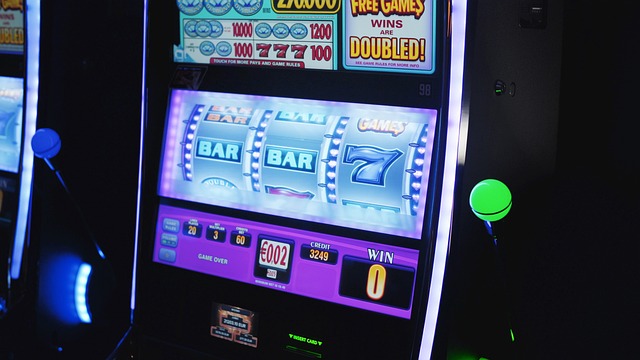In the early United States, gambling was largely unregulated, but the 20th century saw significant changes as economic challenges and shifting attitudes led to relaxed gambling laws. The Great Depression prompted many states to legalize gambling for revenue, and post-WWII era further expanded legalizations like lotteries and horse racing. Nevada emerged as the nation's gambling hub in the 1970s and 1980s. Gambling Laws USA today present a complex patchwork of state regulations, influenced by culture, economics, and specific forms of gambling allowed. Technological advancements and societal shifts continue to shape this landscape, with growing legalizations like sports betting and integration of online platforms necessitating updated laws focusing on consumer protection, problem gambling, and tax implications. Modernization efforts aim for a more uniform regulatory environment while addressing social impacts.
“Gambling laws in the United States have evolved significantly over time, with each state enjoying the autonomy to regulate and legalize gaming as it sees fit. This article offers a comprehensive look at the historical overview of gambling legalization across the USA, delving into current state-by-state regulations and charting potential future trends and reforms. Understanding the diverse landscape of Gambling Laws USA is essential for both industry insiders and casual observers alike.”
- Historical Overview of Gambling Legalization in the USA
- Current State-by-State Gambling Laws and Regulations
- Future Trends and Potential Reforms in US Gambling Legislation
Historical Overview of Gambling Legalization in the USA

In the early days of the United States, gambling was largely unregulated and often illegal, with states taking varying stances on the issue. This changed in the 20th century as economic challenges and shifts in societal attitudes led to a relaxation of gambling laws. During the Great Depression, many states turned to legalized gambling as a way to generate revenue, with casinos and racetracks opening their doors. This period marked a significant turning point, laying the groundwork for the diverse landscape of Gambling Laws USA we see today.
The post-World War II era saw further proliferation, with several states legalizing specific forms of gambling like lotteries and horse racing. The 1970s and 1980s brought about a wave of casino openings, particularly in Nevada, establishing it as the gambling hub of the nation. This historical overview reflects the evolving nature of Gambling Laws USA, shaped by economic needs, social changes, and the diverse preferences of each state.
Current State-by-State Gambling Laws and Regulations

In the United States, gambling laws are a complex web of state-level regulations, reflecting the diverse cultural and economic landscapes across the nation. Each state has its own set of rules governing various forms of gambling, ranging from lotteries and casino gaming to sports betting and online wagering. This fragmented approach results in a patchwork of legal frameworks, with some states embracing expansive gambling operations while others maintain stringent restrictions.
Understanding Gambling Laws USA involves navigating these state-by-state variations. For instance, Nevada and New Jersey have long been hubs for commercial casinos, while states like Delaware and Rhode Island operate smaller gaming facilities. Conversely, several southern states prohibit all forms of gambling, reflecting cultural and religious influences. As such, those looking to engage in legal gambling must stay informed about the specific regulations in their state, ensuring compliance with local laws and regulations.
Future Trends and Potential Reforms in US Gambling Legislation

The evolving landscape of gambling laws USA presents an intriguing narrative, with each state charting its course in this dynamic industry. As technology advances and societal attitudes shift, future trends in US gambling legislation are poised for significant changes. One prominent trend is the increasing legalisation of sports betting, already a reality in numerous states, reflecting a growing acceptance of gaming as a legitimate form of entertainment. Additionally, the integration of online and mobile gambling platforms is likely to gain momentum, requiring updated laws that address consumer protection, problem gambling, and tax implications.
Potential reforms could include more uniform regulations across states to facilitate easier access for legal operators while maintaining robust controls to prevent underage gambling and ensure fair practices. The focus may shift towards a more holistic approach, addressing not just the operations but also the social and economic impacts of gambling, including education programs on responsible gaming and measures to support those struggling with addiction. These reforms aim to modernise Gambling Laws USA, ensuring a safe, regulated, and profitable environment for all stakeholders involved.
The evolving landscape of gambling laws in the USA, as explored across historical contexts, current state regulations, and future trends, underscores the complex interplay between public policy, economic interests, and societal values. Understanding these dynamics is crucial for navigating the dynamic nature of US gambling legislation. As the industry continues to adapt and expand, ongoing reforms will shape a balanced approach that respects individual freedoms while safeguarding vulnerable populations, ensuring a responsible and regulated future for Gambling Laws USA.






